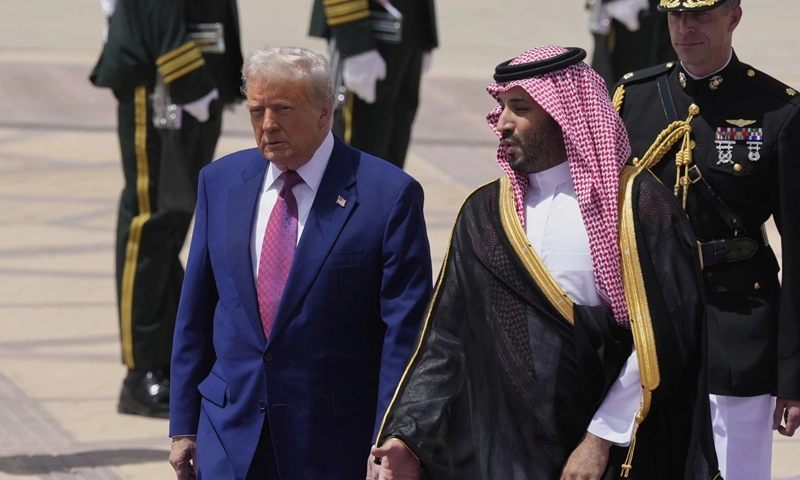In a landmark move, the United States has authorized the sale of state-of-the-art AI chips to Saudi Arabia. This decision, announced during President Donald Trump’s recent Middle East tour, signifies a strategic pivot in U.S. technology export policy, aiming to bolster alliances in the Gulf region and counterbalance China’s growing tech influence. Reuters+1The Guardian+1

📌 Key Developments
- Rescinding of the “AI Diffusion Rule”: The Trump administration has lifted the Biden-era restriction that limited the export of advanced AI technologies to a select group of allies. This change facilitates broader distribution of AI chips to strategic partners like Saudi Arabia. Axios+2Financial Times+2Reuters+2
- Major AI Partnerships: U.S. tech giants, including Nvidia and AMD, have secured significant deals with Saudi Arabia’s newly established AI company, Humain. Nvidia is set to supply at least 18,000 of its latest GPUs, while AMD has committed to a $10 billion investment in joint AI infrastructure projects. Wikipedia+1Carnegie Endowment+1
- Investment in AI Infrastructure: Saudi Arabia’s DataVolt plans to invest $20 billion in AI data centers and energy infrastructure in the U.S., reflecting a deepening tech alliance between the two nations. Asia Times+1Reuters+1
🌍 Geopolitical Implications
The U.S.’s decision to export advanced AI chips to Saudi Arabia is seen as a strategic move to strengthen ties with Gulf nations and counter China’s technological advancements. By fostering AI development in the Middle East, the U.S. aims to establish a network of allied tech hubs, reducing the risk of sensitive technologies falling into adversarial hands. Reuters
However, this approach has raised concerns among some U.S. lawmakers and security experts, who fear that the rapid proliferation of AI capabilities in the Gulf could inadvertently benefit China, given its existing economic and security relationships in the region.
📊 Summary Table
| Aspect | Details |
|---|---|
| Policy Change | Rescinding of the “AI Diffusion Rule” to allow broader AI chip exports. |
| Key Partnerships | Nvidia supplying 18,000 GPUs; AMD investing $10 billion with Humain. |
| Infrastructure Investment | DataVolt’s $20 billion investment in U.S. AI infrastructure. |
| Strategic Goal | Strengthen U.S. alliances and counter China’s tech influence. |
| Security Concerns | Potential for AI technology to reach adversaries through Gulf partnerships. |
Your article helped me a lot, is there any more related content? Thanks!
Can you be more specific about the content of your article? After reading it, I still have some doubts. Hope you can help me. https://www.binance.com/pl/register?ref=UM6SMJM3
Your point of view caught my eye and was very interesting. Thanks. I have a question for you. https://accounts.binance.info/el/register?ref=DB40ITMB
Your article helped me a lot, is there any more related content? Thanks! https://accounts.binance.com/ph/register-person?ref=IU36GZC4
Your article helped me a lot, is there any more related content? Thanks! https://www.binance.com/register?ref=IHJUI7TF
Your article helped me a lot, is there any more related content? Thanks!
Your point of view caught my eye and was very interesting. Thanks. I have a question for you.
Your article helped me a lot, is there any more related content? Thanks!
Thanks for sharing. I read many of your blog posts, cool, your blog is very good. https://www.binance.com/sl/register?ref=I3OM7SCZ
Thanks for sharing. I read many of your blog posts, cool, your blog is very good. https://www.binance.com/register?ref=IHJUI7TF